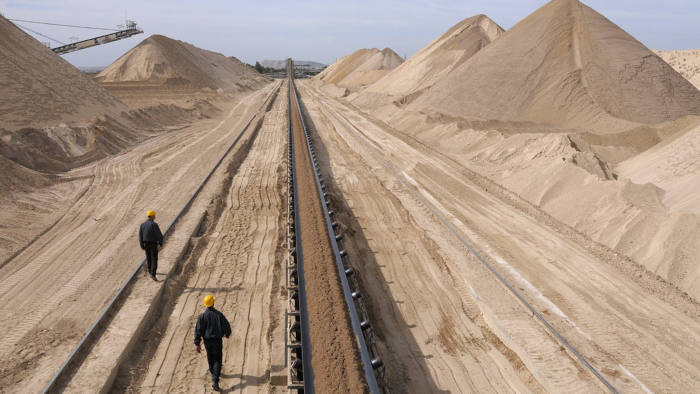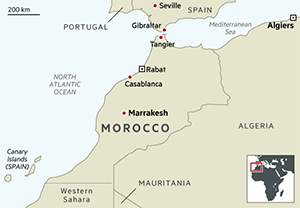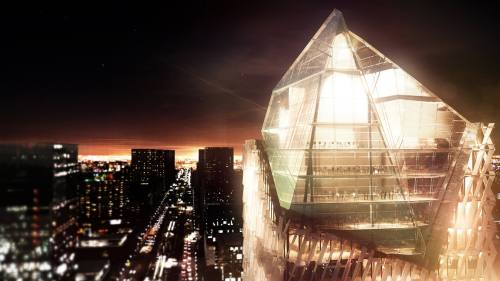Financial Times
Heba Saleh
Rabat uses diplomacy to bolster its economic and political goals in pivot south.
When economic growth slowed in Morocco after the global financial crisis in 2008, it prompted Richbond, a 60-year-old industrial group, to start looking for a new strategy.
By 2012, the leading Moroccan manufacturer of plastics and foam mattresses had decided to seek opportunities in fast-growing markets in sub-Saharan Africa to make up for flatlining revenues at home. “We needed growth and we needed to diversify,” says Karim Tazi, one of two brothers who run the family business. “We had two choices: to either invest in Morocco, but out of industry; or to invest in industry, but out of Morocco.”
Mr Tazi spent a year and a half visiting sub-Saharan countries to find companies to buy or team up with. He finally settled in 2014 on a greenfield investment of $17m to set up a mattress factory in Ivory Coast. “The huge and powerful presence of Moroccan banks there was an encouragement,” he says. “Ivory Coast is also a gateway to west Africa and of course there are direct flights from Morocco.”
Mr Tazi was following other Moroccan entrepreneurs who have been pushing into sub-Saharan Africa for more than a decade in a bid to expand beyond their limited domestic market. Moroccan banks, insurance firms, companies in telecoms, mining and construction have established a significant presence in African countries, making the kingdom a notable source of foreign direct investment in some parts of the continent. OCP, the state-controlled phosphates giant, has also invested in African countries. Moroccan investments in Africa totalled some $10.2bn between 2010 and 2018, according to fDi Intelligence, a Financial Times publication.
The kingdom’s interest in its southern neighbours stems from both political and economic motives. Under the leadership of King Mohammed VI, Morocco has used soft power, including investment, diplomacy, education and cultural relations to carve out a sphere of influence in the continent, which benefits its economy and enhances its international standing. In recent years, the king has toured African nations signing agreements in a high-profile outreach effort, which has helped pave the way for Moroccan companies. Much of this, analysts say, has been in support of Morocco’s primary foreign policy concern — to shore up international backing for its claim over the disputed territory of Western Sahara.
Morocco already controls most of the territory but its sovereignty is contested by the Polisario Front, the Algeria-based Sahrawi movement demanding independence for Western Sahara, a former Spanish colony. UN efforts to resolve the conflict have been stalled for almost 30 years. Many African countries backed the Polisario and recognised its self-proclaimed Sahrawi Arab Democratic Republic, announced in 1976. Over the years, however, Morocco has been able to flip the position of some and persuade others to assume a neutral stance.
One of the strongest signs of Morocco’s pivot towards Africa came in 2017, when it rejoined the African Union, 33 years after it had pulled out in protest against the admission of the SADR. The Sahrawi republic is still a member, but Morocco’s engagement with Africa through AU membership, helps it compete for influence with Algeria, its regional rival and main backer of the Polisario Front, says Anouar Boukhars, assistant professor of International Relations at McDaniel College in the US.
“A lot of this is about Western Sahara,” says Mr Boukhars. “Now in the AU they no longer speak of Western Sahara as a colony and of Morocco as an occupier. They use UN language saying it is a disputed territory. Yes, the Sahrawi republic is still a member, but Morocco is now trying to influence the AU from within.”
He and others note Morocco’s efforts to cement ties with African countries through initiatives which include training imams, offering scholarships to sub-Saharan students at its universities, and sharing intelligence with Sahel countries fighting Isis and al Qaeda, with the support of French troops stationed in the region. Issandr al-Amrani, north Africa director of the International Crisis Group, says Morocco’s engagement with Sahel countries — those to the immediate south of the Sahara desert — allows it “to turn around and present itself to the West as a partner for counter-terrorism”.
The largest three Moroccan banks have increased their presence in Africa to some 23 per cent of their loans.
Bad relations with Algeria over Western Sahara are part of the reason Moroccan businesses have looked south to expand instead of in their own neighbourhood. Europe remains Morocco’s biggest trade partner, but trade with Africa, while still low, has been growing at a yearly rate of 12.8 per cent.
Attijariwafa, one of Morocco’s biggest banks, started its expansion in sub-Saharan Africa in 2004 at a time when the banking industry was already consolidated and had little room to grow domestically, according to general manager Ismail Douiri. He says the five top banks controlled 80 per cent of banking assets, which left little room for growth beyond the single-digit growth rate of the wider economy. The king’s policy to push into Africa created an added incentive. “We were in a country where our larger corporate clients were already becoming more international and the policy of our king was to push strongly to develop investment and trade with sub-Saharan countries,” he says. “Like any other company we wanted to continue to deploy capital in the thing we know how to do where we see opportunities for profitability and growth. Also, it was a defensive move to stay close to our biggest clients.”
According to Moody’s Investor Services, the rating agency, the largest three Moroccan banks have increased their presence in Africa to around 23 per cent of their loans. Mr Douiri says, 22 per cent of Attijariwafa’s profit comes from sub-Saharan markets.
Morocco has also been positioning itself as a base for European companies seeking to do business with sub-Saharan Africa. To that end, it has launched Casablanca Finance City, a special zone offering tax and other incentives. Mehdi El Idrissi, an executive at Eurosearch & Associés, a Paris-based recruitment company, says 80 per cent of his firm’s business involved recruiting senior level employees and board members for international companies choosing to base themselves in Morocco for ease of access to African markets.
“We expect to do 50 per cent more business this year,” he says. “Companies now view Morocco as a hub not only for regional business but also for certain aspects of their businesses in Africa.”
Explore the Special Report
READ MORE
Casablanca Finance City offers hub to Africa-bound local and foreign business
ABOUT THIS SPECIAL REPORT
The kingdom is increasing its presence in sub-Saharan Africa to boost its economy and international standing. Moroccan banks accept greater risks to pursue high returns in markets to the south, Casablanca is rebranded as a finance hub but the country’s bid to join the Economic Community of West African States (Ecowas) faces opposition from members
Currently reading:
Moroccan companies and banks support king’s push into Africa
Morocco’s Ecowas bid sparks African fear and suspicion
Casablanca Finance City offers hub to Africa-bound local and foreign business
Morocco banks expand to west Africa for greater if riskier returns
Morocco positions itself as more independent FDI portal to Africa
Morocco’s pivot to Africa hints at a new post-colonial order
What Morocco’s Richbond and HPS learnt from African expansion









